Cate Blanchett covers the latest issue of Madame Figaro, out today on newsstands in France. Magazine subscription here.
The interview has been Google translated from French to English.
Magnetic star, mother of four children, international ambassador for Giorgio Armani Beauty, she also defends the cause of refugees within the UN. A committed heroine whose involvement has nothing to do with a compositional role.
The interminable actors’ strike prevented any conversation. But the conflict has ended and Cate Blanchett speaks to us very willingly on the telephone from England, where she lives with her husband and four children, generous with her time, almost an hour, clear mind, stentorian voice and Shakespearean diction. Her magnetic presence, her metamorphoses and her singular beauty (an aura reminiscent of Katharine Hepburn, whom she also played in Aviator, by Scorsese) outclass her: an overpowering actress, perhaps the most important of her generation, she has impressed last year with Tár, a sort of holy grail of interpretation. Tall, blonde, pale, her sophisticated physique fits precisely with the imagination of the Armani house which enlisted her as an international Giorgio Armani Beauty ambassador, but also the face of Sì perfumes. A film buff with eclectic taste (she cites Jacques Tati, Lucille Ball, Bi Gan and Lucrecia Martel), she is also an informed producer within Dirty Films, the young company that she co-directs and which unearths directors: Christos Nikou (Fingernails), Noora Niasari (Shayda), Warwick Thornton, whose The New Boy has just been distinguished at the prestigious Camerimage Festival. Chic, she prefers to comment on the latest talent that she produces rather than talking about the Alfonso Cuarón series (Disclaimer), which she finished, or her upcoming reunion with Jim Jarmusch. Interview with a grown-up.
Madame Figaro: Hollywood’s historic actors’ strike ended last month with a settlement. What does this victory inspire you?
Cate Blanchett: In France, you know well the importance of strikes, which sometimes represent the only means of action to claim or protect certain rights. We know that, overall, the social body is fragile. I am proud of union members, negotiators and rights defenders in general. This battle won, not without difficulty, has brought a little humanity back into an industry that lacks it.With the increase in salaries, one of the axes of this strike was the emergence of artificial intelligence, which endangers the work and the identity of those involved who could see themselves dispossessed without authorization…
CB: This is very worrying: it is not just an existential threat, but a concrete threat for many professions, and not only in the world of cinema: it affects absolutely all citizens. Ethical questions are regularly and legitimately debated in certain fields (pharmaceutical or health, for example) while in others, technological advances are simply integrated without further debate. However, we can imagine the considerable impact, not only for mental health but also in economic and social terms. Coming back to the strike, I don’t think it will put an end to the debates. This is only a foretaste of other actions to come, legislative implications for example.Are we on the threshold of a new “New Hollywood”?
CB: There are days when I feel more optimistic than others. I was at the end of the pandemic. I told myself that if we had been lucky enough to come out of it in good health and without economic drama, this forced break had taught us that it was imperative to refocus on the essentials of life. So, if I want to be optimistic about our profession, I will say that technological innovations will also generate new opportunities. And then this danger weighing on the cinema reminded us how important it was in our lives, that the fact of moving into a theater was, in a certain way, an event. Cinema is designed by people for people: in this sense, its approach is magnificently human.With Nicole Kidman, Jodie Foster and Reese Witherspoon, you were one of the first movie stars to appreciate the interest in working for platforms…
CB: What is important? The public. For example, I love doing theater because we reach a very different audience. It’s the same, differently, with TV and streaming. So many cultures, so many spectators, so many ways of “consuming” culture. What is important to me is to maintain a strong connection with the viewer, whoever they may be. I have never underestimated television: I worked in miniseries when I started and I have just finished Disclaimer, for Apple TV+, directed by Alfonso Cuarón. Shooting for TV is very educational: you have to choose quickly, go quickly, you barely have time to get nervous. And then obviously, TV allows us to tackle more specialized subjects: thus Stateless, the series that I co-produced with my production house Dirty Films, is interested in the conditions of detention of migrants in Australia, a fascinating subject but which would never have been considered sexy enough for the movies. Not all topics are good for theaters, although they may pique the curiosity of a Netflix viewer sitting on the living room sofa.You travel a lot. Do you ever say to yourself: “I can’t take it anymore, I’ll stop”?
CB: If you knew! Every day! I have the privilege of doing this job, but I do it in accordance with the rules that govern my life. I love my family, my friends, my garden. There are so many interesting things to do in life.It seems that many of your projects revolve around the future, a vision of the future. Does this concern you?
CB: We all tend to think that the future will have nothing to do with the present or the past. Man neglects history while, as Marx and others said, a civilization that forgets its past is condemned to relive it. In a way, we are currently going through a period of failure: we are in regression, the news shows this sadly every day. We haven’t had the ability to reinvent ourselves. Obviously, I don’t have the solution. I’m just trying to tell myself that it’s important to respect the little time everyone has during their time on earth. This requires immediate commitments, whatever their scale. I think about the climate, I think about water, which is a subject that concerns me a lot. When you have children, the fear of the future is almost literal. But not only that: you can plant a tree and simply want it to live and grow. The world has never been so uncertain it seems to me…You are the mother of four children, including three boys. What are you trying to convey to them?
CB: I never think about gender. I only think about it when my gender (that of a white, middle-class woman) might be an obstacle to a project. What can happen to me as a white woman happens to millions of others. I never thought about raising my sons differently from my daughter, even though I am aware that with sexual violence against women and gender issues, I have things to teach them, even more so now… social networks. But really, I act the same way with my boys: women’s safety also requires a conversation from which they must not be shielded. In extremely chaotic times, it seems very important to me that my children maintain hope. There is no question of denying distress, but we should identify it and try to counter it by transforming it into something else: understanding, empathy, compassion. Here it is: I teach my children compassion. In recent years, we have had a series of conflicts and disasters. I teach my children that, in some way, everything is connected. Geographic, religious, sexual, racial, cultural boundaries, everything is linked. We need to find a way to collaborate together. What I call a human project. The microcosm, the matrix of all this is obviously the family. My family is no less chaotic than the others, it is not exemplary, but our role, that of parents, is to guide the children so that they can, one day, solve their problems instead of doing as if they didn’t exist.You spoke last month at the European Parliament in Brussels. Are you a political activist?
CB: No. Humanity has become a political subject and it’s heartbreaking. I was invited by the President of the European Union to speak about my role as United Nations Ambassador for Refugees. I participated in missions in Niger, Jordan and Sudan. Concerning the migration crisis or climate change, what interests me are less the political issues than the human issues. On the planet, nearly 120 million people are displaced. This problem has become global. It does not only concern the south of the planet but the north as well, all of us. I did not speak to be moralistic, but to testify to what I saw and plead for the protection of refugees rather than the fortification of borders.On a completely different note, is choosing a role a political act?
CB: I would be tempted to say that it is exactly the opposite. It’s instinct that rules. I think ulterior motives or calculations kill art. We cannot and must not manipulate the public. We can try to guide viewers to ask themselves certain questions, but we cannot answer them for them.You live in England. Why Europe?
CB: It happened a bit by chance. We settled in England, the children go to school here. We haven’t moved from here. It also allows us to fly less. Europe has become my home. I say Europe because I am still in denial about Brexit (Laughs).Do you feel European, American, Australian?
CB: I remember when I was at drama school in Sydney, I had a Polish friend and I asked him how he ended up in Australia. His story was complicated, but he told me that when the time came, he wanted to be buried in Poland. I was too young to understand, but today I wouldn’t know how to answer. It seems to me that it doesn’t matter where I’m buried. I think we give too much importance to ourselves. I know I have to have this conversation one day with my mother, who I love and who lives with us. What to do with her ashes? When I worked on the film The New Boy, set in the Australian desert, I realized how deeply I love this place. It’s unique, magnetic, magical. An ancestral land, literally. But I feel that I have no right to scatter my ashes there, even if my thoughts often bring me back there. I don’t come from this place, and we must respect those who live there. In fact, I always have the strange feeling of living outside of things and places, whether in Australia, the United States or Europe… As I don’t feel attached to a single group of people, it is interesting because it gives me other perspectives. My people, all things considered, are perhaps theater people!Another subject: the Armani Beauty ambassador. It seems that you are getting closer to the aesthetic ideal of Giorgio Armani, tall, blonde, pale, sophisticated, like those women we see in the “white telephone cinema”, the Italian films of the 1940s…
CB: There is certainly an “Armani woman” is an idea of ??feminine power, a particular type of power that has to do with fluidity, openness, agility of mind. Mr. Armani accompanies this accomplishment, from the young girl to the woman. It’s not up to me to say what I embody in his eyes. With him, we talk about culture, literature, cinema, theater: his parents come from there, that’s perhaps what brought us together in the first place. He is one of the last living maestros. He has crazy energy and invests himself in everything he does. And when he asks you a question, with his piercing blue eyes and quick wit, you better have something interesting to answer. (Laughs.)Is your particular beauty, so often praised, a component of your confidence?
CB: It is the experience that gives the courage and confidence to take each new step in life. I always say, fear is just misplaced excitement. I differentiate between doubt and lack of confidence. Lack of confidence makes you miss opportunities, while doubt makes you curious. I am a person who constantly doubts. I question myself. I try to understand, without always succeeding. And I listen, I love conversations with people like Mr. Armani, Steven Soderbergh or Liv Ullmann. It is a privilege to have been able to meet them. Coming back to fear, being afraid is normal, we all are afraid. Fear is also what keeps us alive. Fear becomes a problem when it prevents you from living. It’s a subtle balance to find.
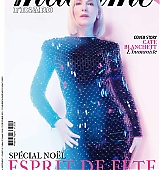
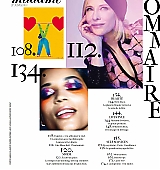
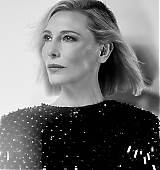
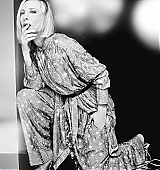
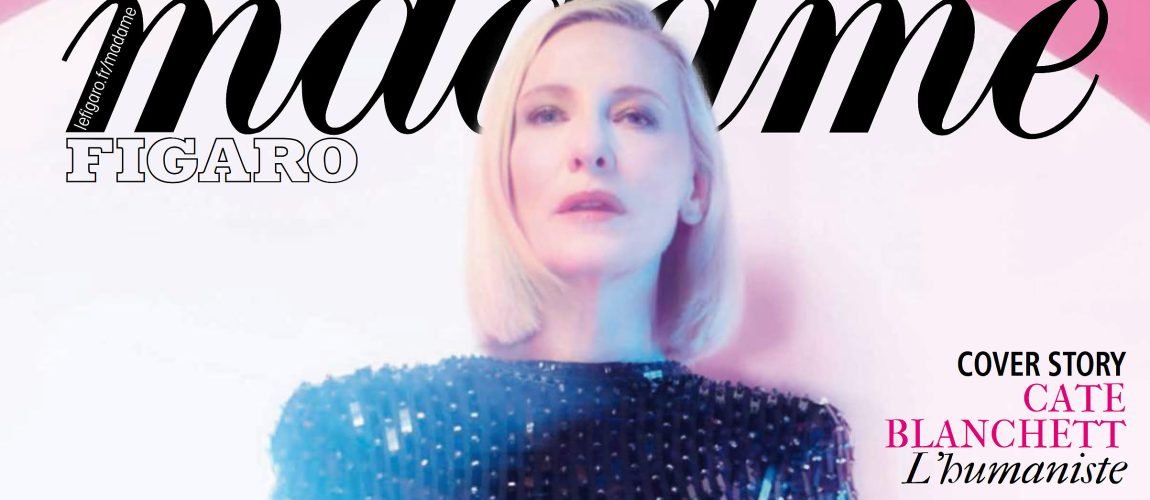
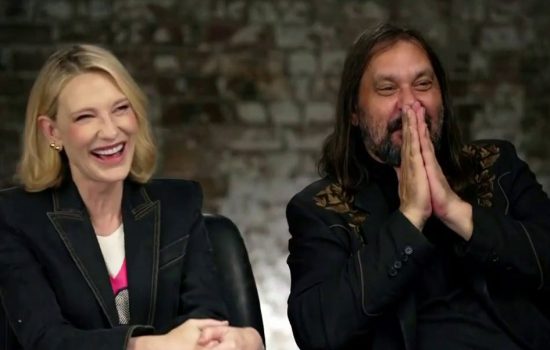
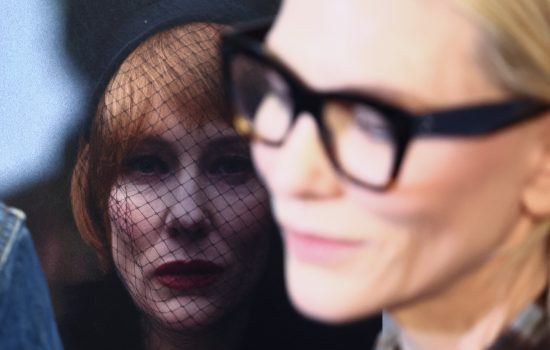
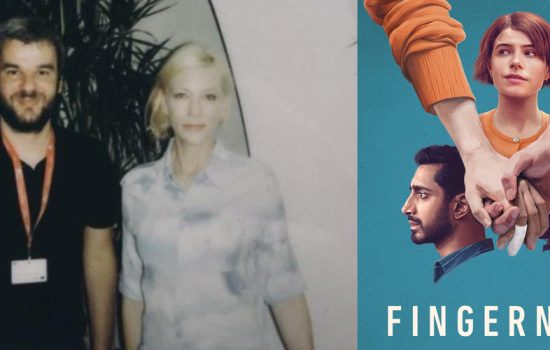

 A Manual for Cleaning Women (202?)
A Manual for Cleaning Women (202?) Father Mother Brother Sister (2025)
Father Mother Brother Sister (2025)  Black Bag (2025)
Black Bag (2025)  The Seagull (2025)
The Seagull (2025) Bozo Over Roses (2025)
Bozo Over Roses (2025) Disclaimer (2024)
Disclaimer (2024)  Rumours (2024)
Rumours (2024)  Borderlands (2024)
Borderlands (2024)  The New Boy (2023)
The New Boy (2023) 











